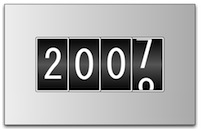 I’m always looking for useful analogies to convey how good editing can improve advertising copy, web features, white papers, and other written communications. This morning I was reading an article about medicine and it hit me that what editors do when revising a piece of written work is analogous to what doctors do when diagnosing a patient’s symptoms.
I’m always looking for useful analogies to convey how good editing can improve advertising copy, web features, white papers, and other written communications. This morning I was reading an article about medicine and it hit me that what editors do when revising a piece of written work is analogous to what doctors do when diagnosing a patient’s symptoms.
Like a living organism, written copy is a complex system of interactive elements that can be rendered “unhealthy” by the presence of errors in spelling, grammar, or logic. A good editor, like a good doctor, knows how to read the symptoms — for example, “this doesn’t sound right, but I don’t know why” — and can suggest corrections that will restore the piece to optimum health.
Let’s take a look at how you can apply the four cornerstones of diagnostic medicine to make your writing all better.

 Recently, in preparation for an interview for a magazine article, I visited the website of the interviewee’s organization to get some background information. In particular, I wanted to make sure I understood the organization’s mission; it’s a useful reference point for framing interview questions.
Recently, in preparation for an interview for a magazine article, I visited the website of the interviewee’s organization to get some background information. In particular, I wanted to make sure I understood the organization’s mission; it’s a useful reference point for framing interview questions. I read an interesting post on
I read an interesting post on  New Year’s Day is the traditional time for resolutions to take effect. Have you made writing and editorial resolutions for your business yet?
New Year’s Day is the traditional time for resolutions to take effect. Have you made writing and editorial resolutions for your business yet?